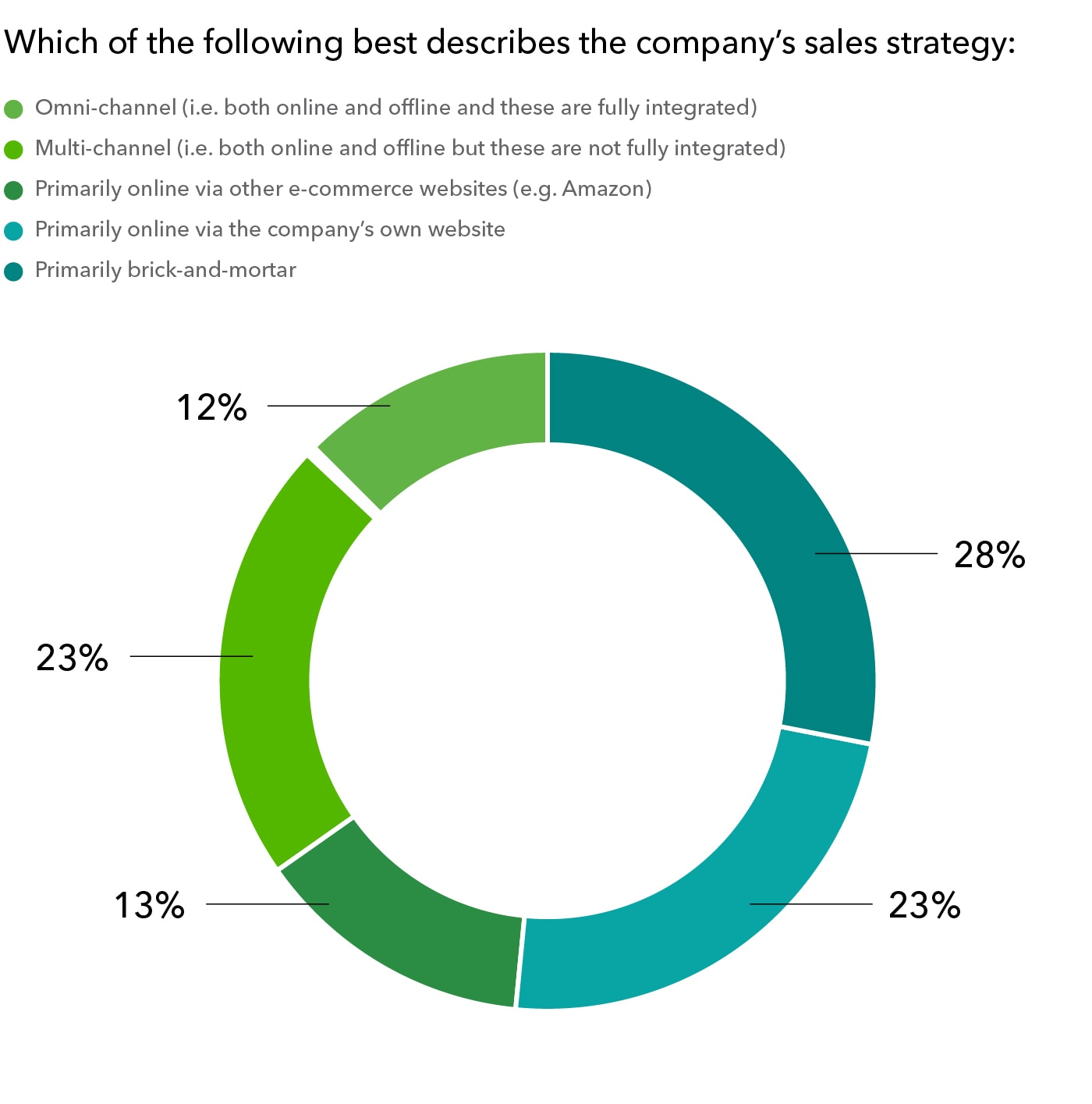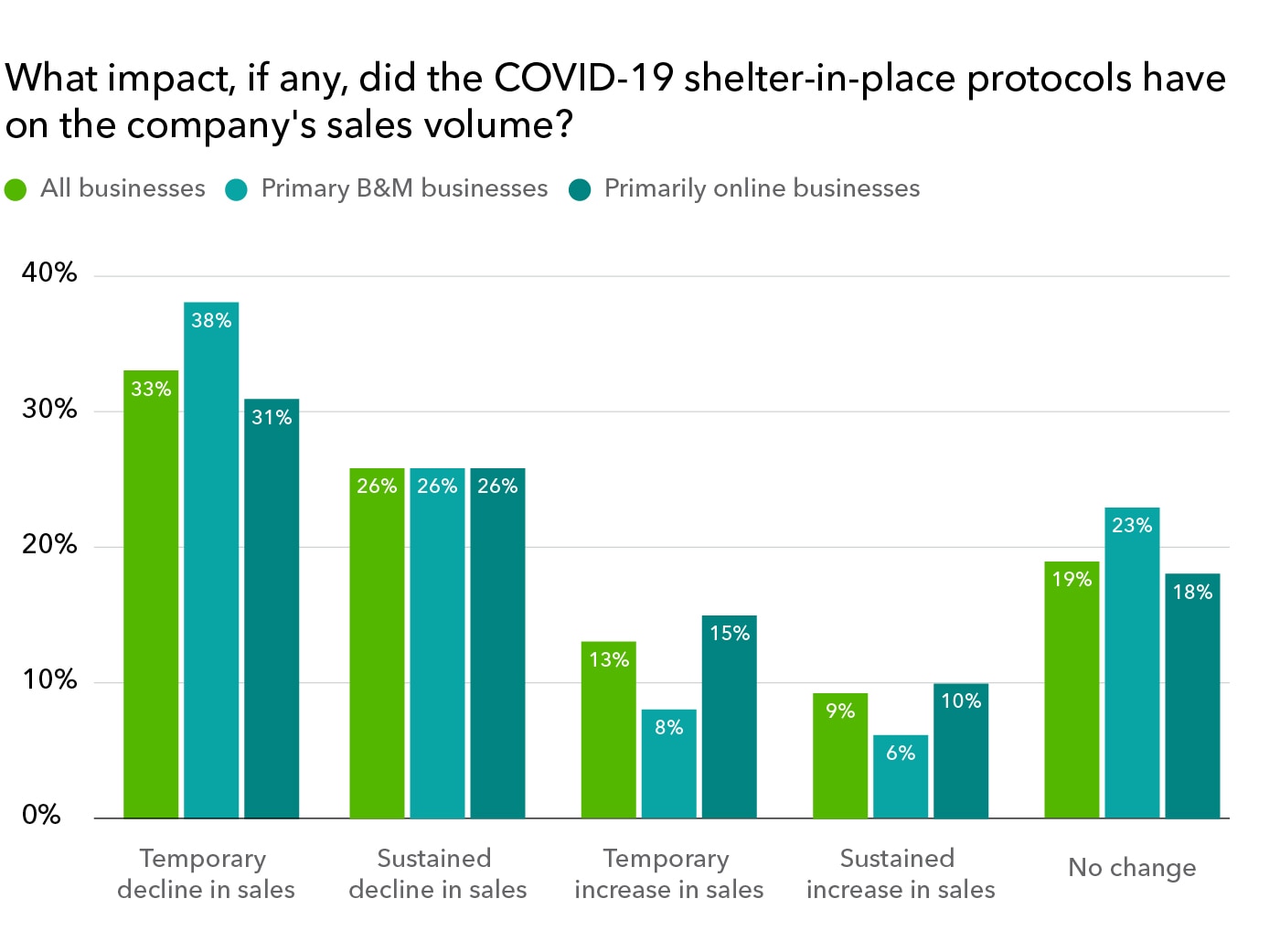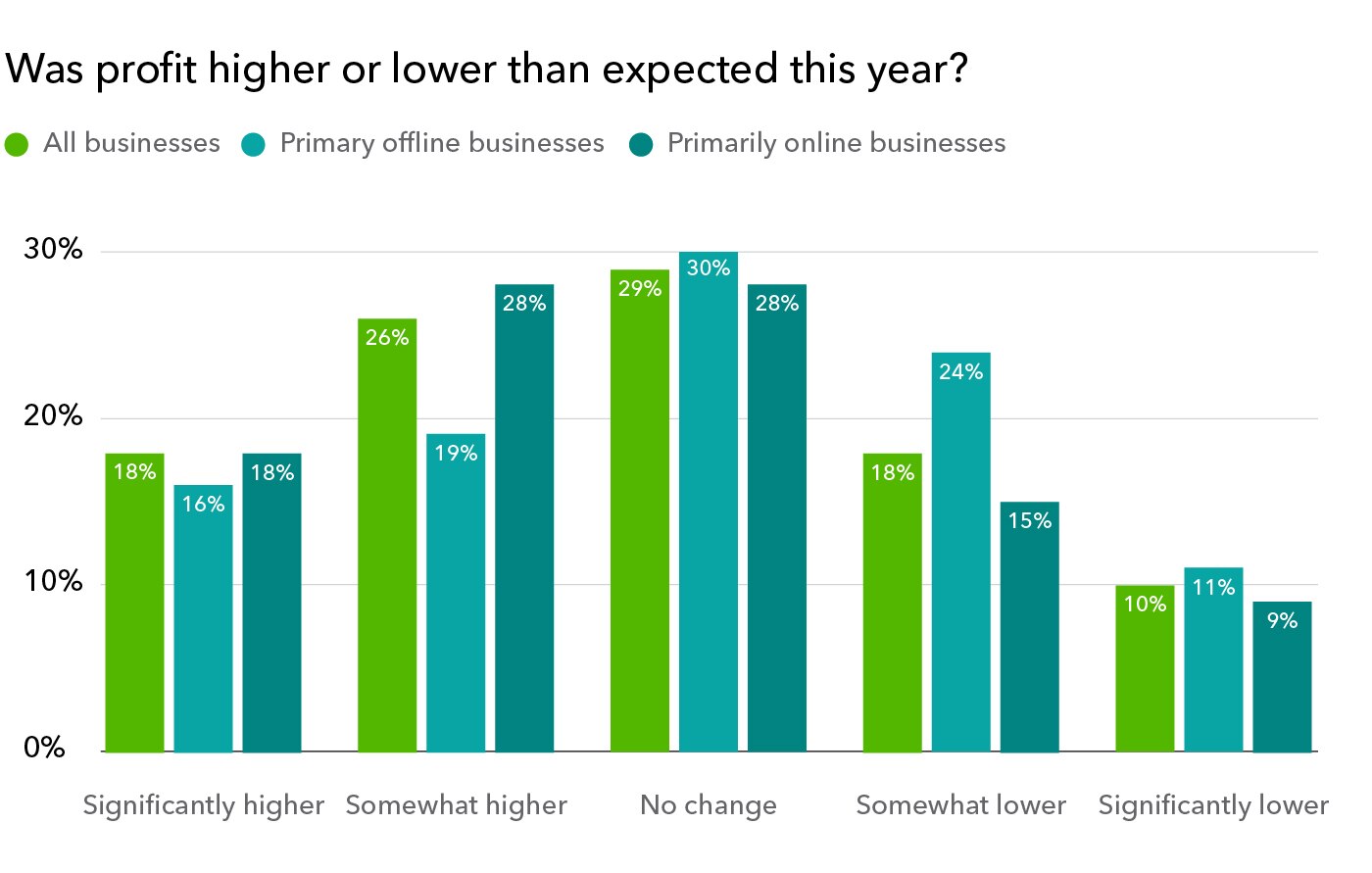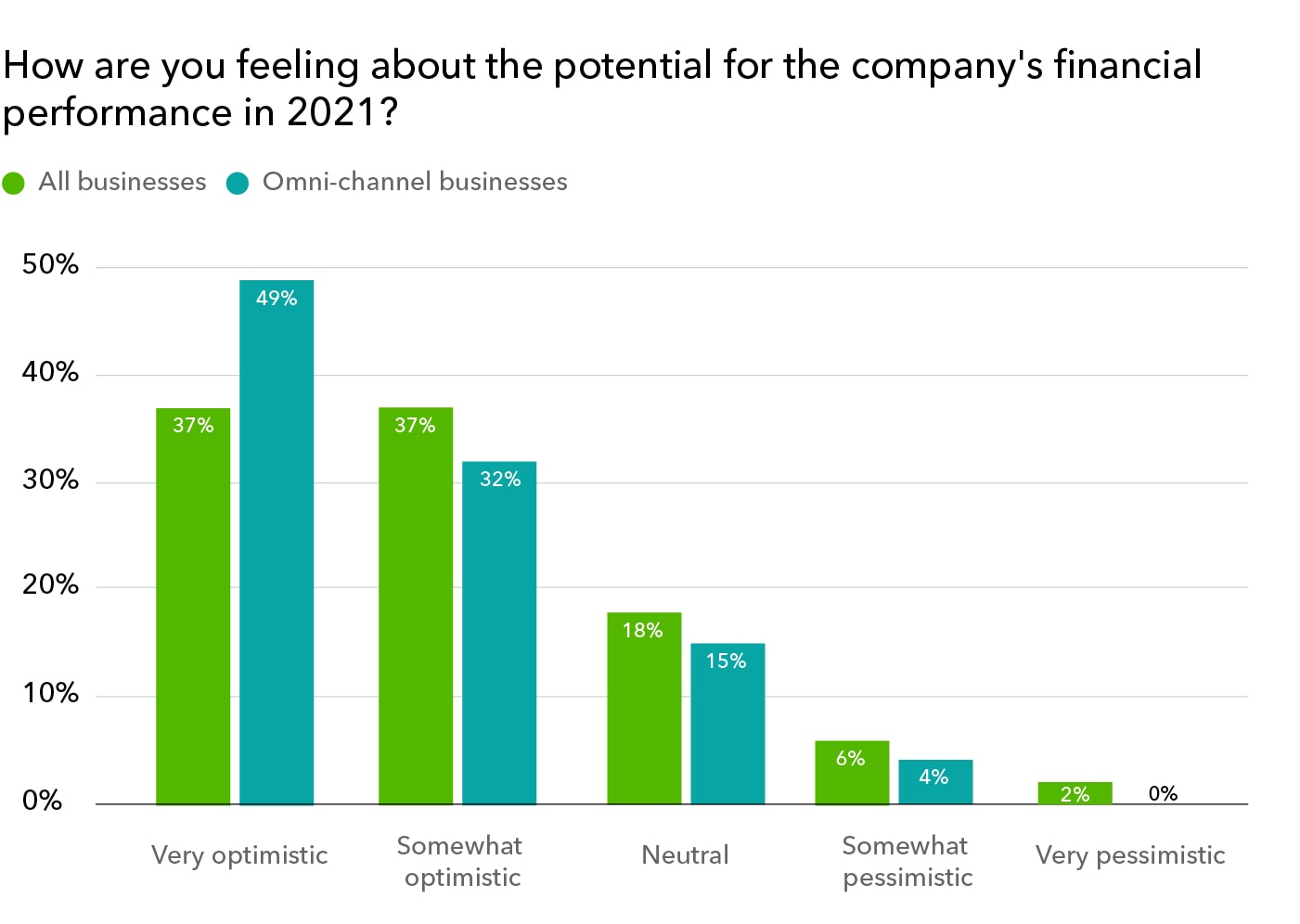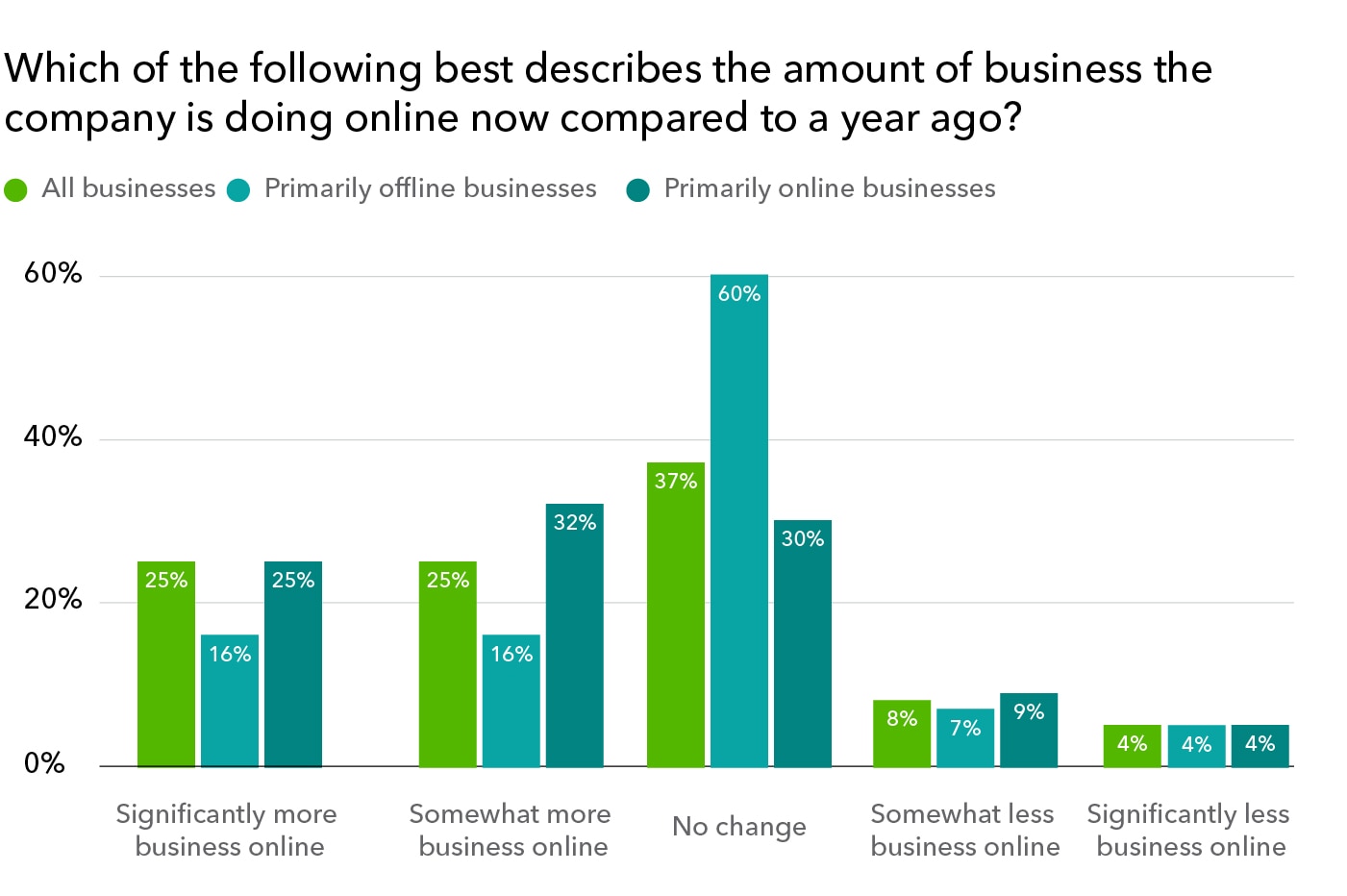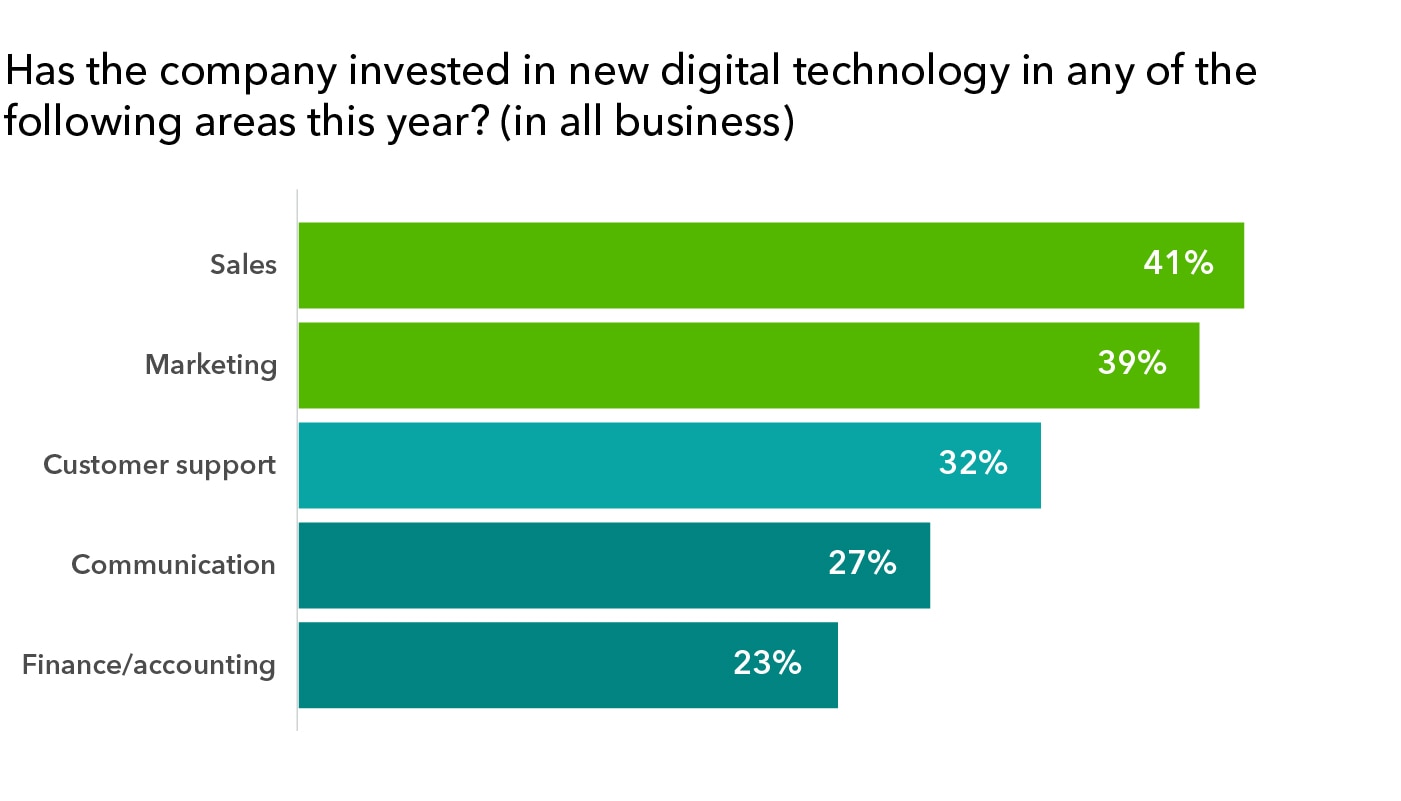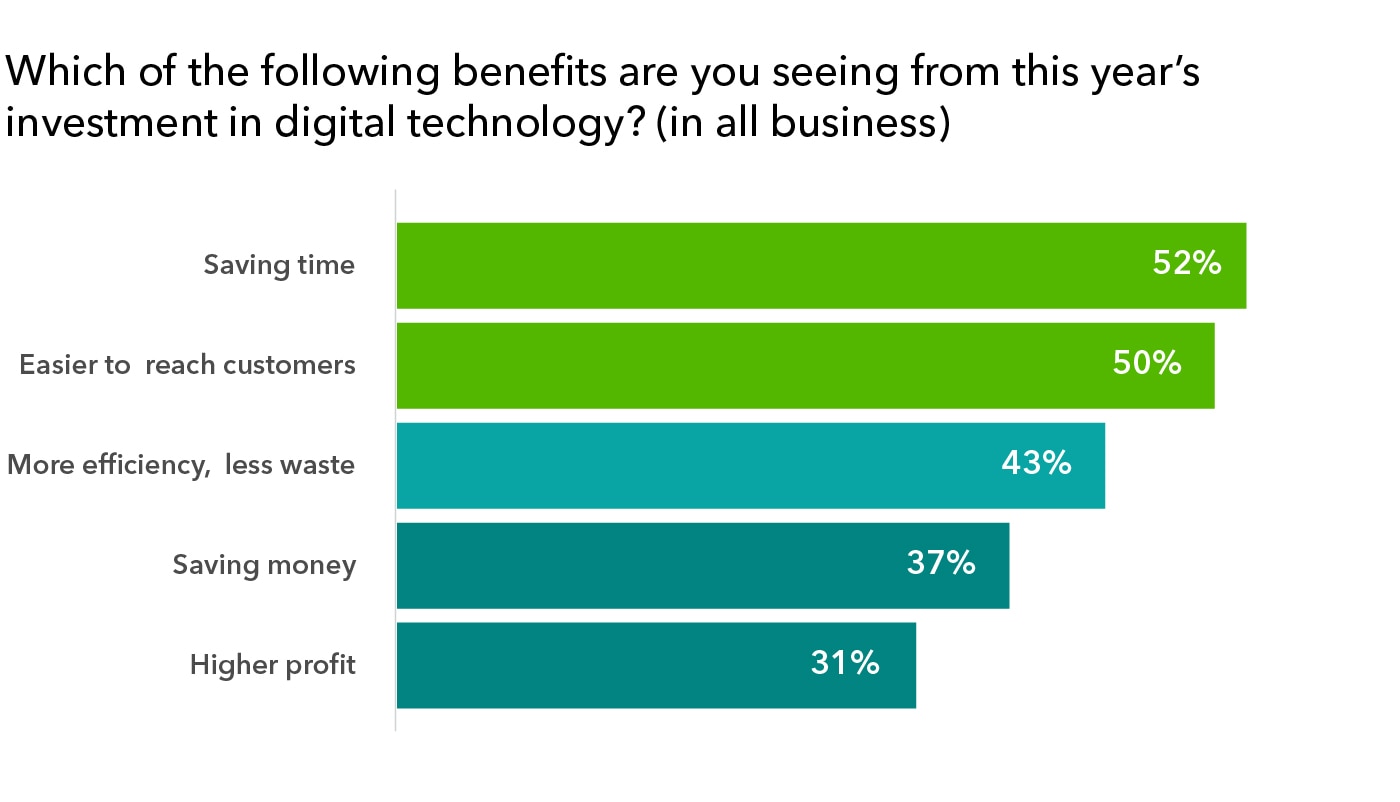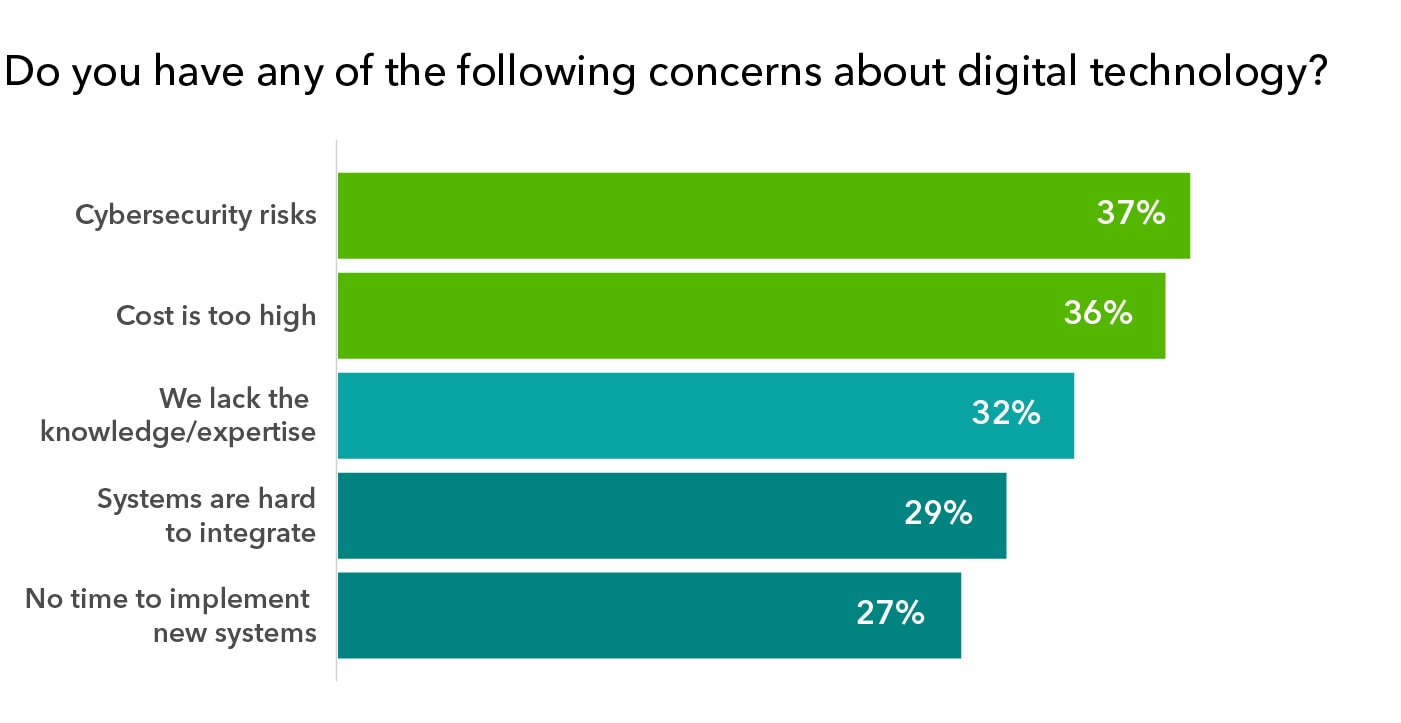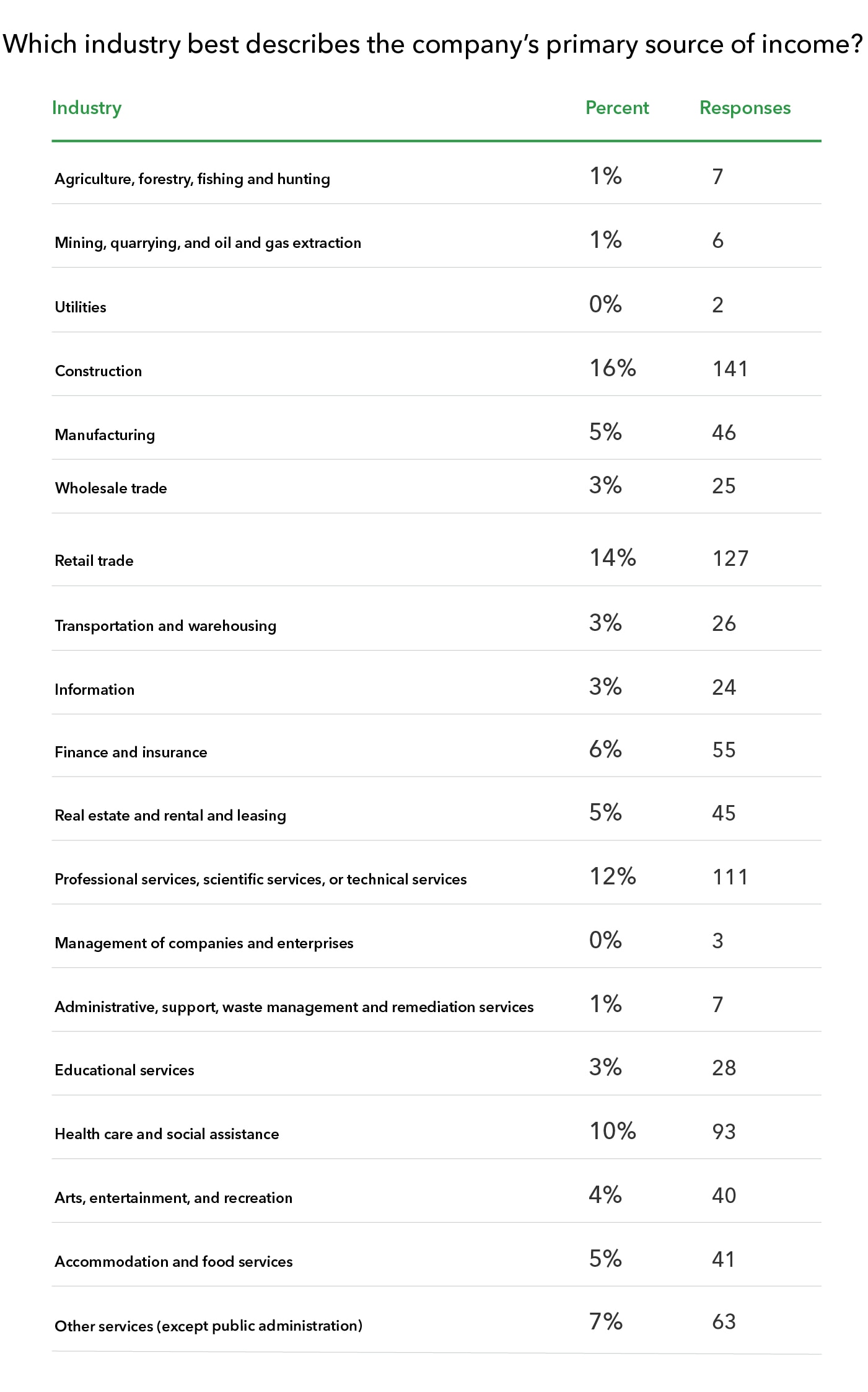Just one in two business owners believe their digital marketing is where it needs to be (either “good” or “excellent”). The other half think their digital marketing strategy could use some work, especially when it comes to bidding for and targeting ads on Google and social media. The majority of business owners know search engine marketing is effective, but only 63% say they feel their company is able to compete effectively in Google search rankings.
That being said, nearly one in two small business owners say they need to increase their online sales volume in 2021—and mastering digital marketing is a critical way to reach new customers.
1Methodology: Small Business E-Commerce Survey, December 2020
QuickBooks used an online questionnaire with 27 questions to survey a representative sample of 890 small business owners and decision-makers from U.S. companies with <100 employees. The data was collected in November 2020, using quotas for business size and industry that mirror the latest data from the U.S. Census Bureau’s Statistics of U.S. Businesses. The census data shows that in 2017 there were 5,907,070 U.S. businesses with zero to 100 employees. This gives the data a 99% confidence level at a 4% confidence interval. To allow for comparisons to be made between different types of businesses—for example, whether they sold products or services, and whether their primary source of revenue was from online or in-person sales—respondents were asked both what they sold and how they sold it. The industry breakdown is as follows:









